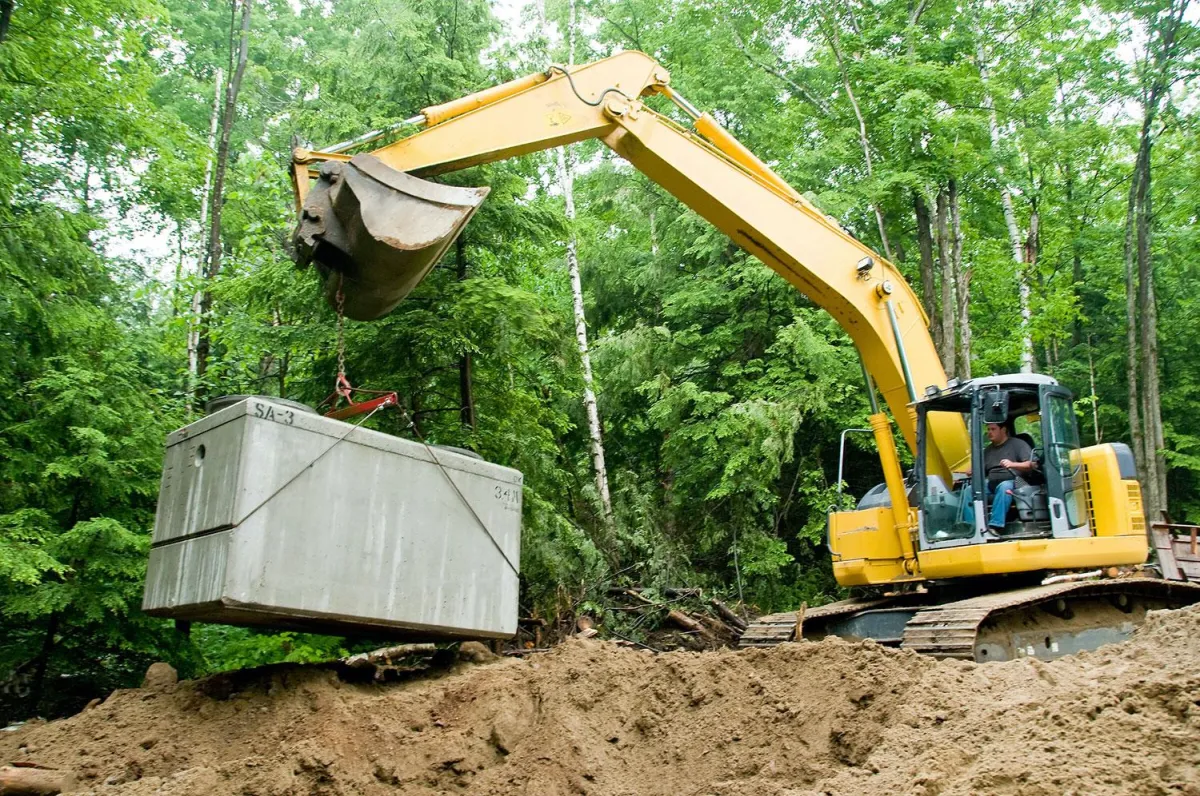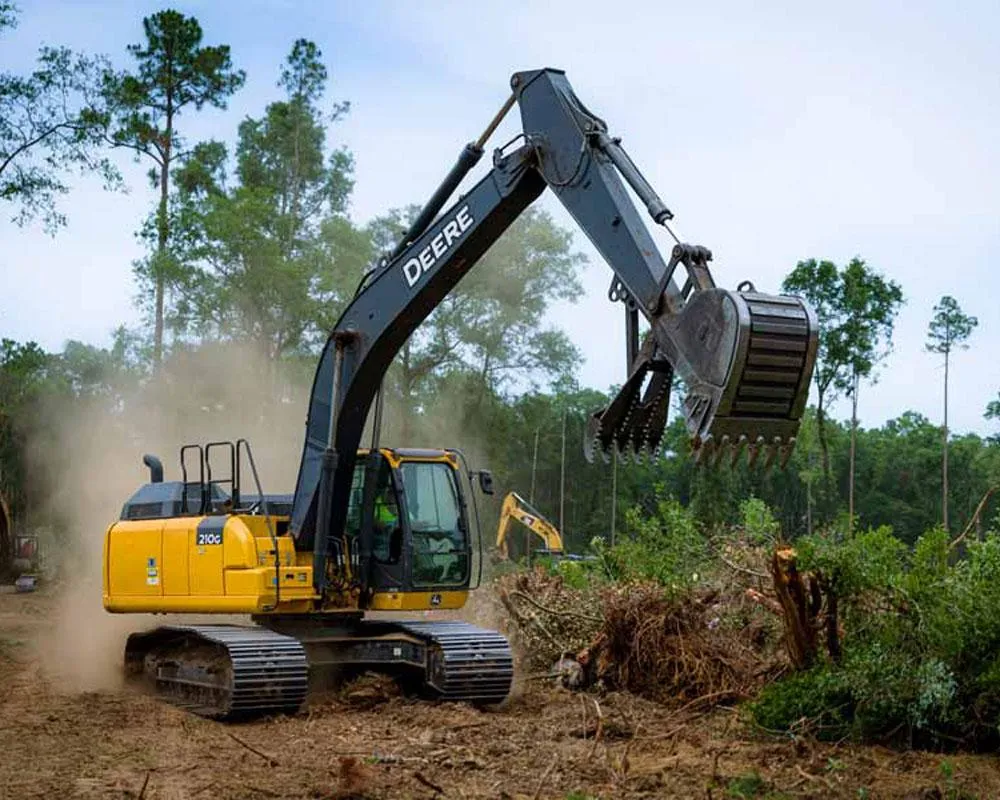
Serving Michigan counties: Macomb, St Clair, Wayne, Oakland, Genesee, and Tuscola Counties
Excavation and Septic Company near Armada in Macomb County, MI
Superior Surfaces LLC is Committed to superior quality and results!

AVOID COSTLY MISTAKES:
Do NOT hire an excavating contractor without first reading our free guide:
The ULTIMATE Excavation & Septic "Success Guide."

Excavation and Septic Company near Armada in Macomb County, Michigan
Planning a new build, replacing a failing septic system, or solving soggy yard problems in the Armada area can feel overwhelming. You want straight answers, realistic timelines, and workmanship that holds up through Michigan winters. Partnering with a qualified local excavation and septic team streamlines the entire journey, from permits to final grading. Below, you will find what a professional crew actually does, the benefits of hiring nearby experts in Macomb County, Michigan, and a simple process to move from your first call to final inspection.
How Can We Help?


What an excavation and septic company near Armada does
A professional crew blends heavy equipment skill with soil science and code compliance. Typical services include full site preparation for homes, pole barns, additions, and shops. Crews perform precise grading for positive drainage, trenching for water, power, and gas, culverts and driveway approaches, and safe small structure demolition. On the septic side, the team designs and installs complete systems, from tanks and drain fields to pumps, risers, and alarms, and handles troubleshooting, repairs, and replacements. They also build swales, ditches, and outlet solutions to keep stormwater where it belongs. When needed, erosion control measures such as silt fence and inlet protection are installed to protect neighboring properties and water bodies. The result is a site that drains correctly, meets code, and is ready for concrete, framing, or landscaping.
Trusted Excavation and Septic Company near Armada in Macomb County, Michigan
Local conditions influence every decision. Northern glacial soils, seasonal high water tables, and freeze-thaw cycles drive design and installation methods. A nearby team understands Macomb County Health Department requirements, typical frost depth, and how spring saturation affects percolation. That practical knowledge helps you avoid redesigns, failed inspections, and costly callbacks. Proximity also shortens mobilization time, which matters when weather windows are tight and inspections must be scheduled in sequence.
The benefits of hiring a local excavation and septic company
One accountable partner. Instead of juggling separate dirt work, septic, and drainage vendors, you get a single point of contact that coordinates design, equipment, trucking, and inspections.
Code confident work. Crews that build in the same area daily know setbacks, isolation distances, and acceptable materials, which reduces change orders.
Better site protection. Operators who respect your property plan access routes, mat soft areas, and restore lawns and drives when the work is done.
Clear communication. Nearby teams meet on site to walk grades, mark tank locations, and confirm elevations before digging.
Fewer surprises. Familiarity with common Armada soils helps anticipate clay seams, sand lenses, or perched water so the right system is proposed from the start.
See Our Excavation and Septic

✔️ Commercial Excavation
✔️ Residential Excavation
✔️ Basement Excavation
✔️ Demolition
✔️ Large Pond Construction
✔️ Small Pond Construction
✔️ Dozer Work
✔️ Forestry Mulching
✔️ Grading, Lot Clearing
✔️ Retaining Walls
✔️ Concrete Flatwork - Driveways, Sidewalk, Foundations
✔️ Foundation Repairs
✔️ Full Site Preparation
✔️ Foundation Repairs
Quality Services Launched FAST!

✔️Septic Install and Repair
✔️ Septic Inspections
✔️ Septic Installs Traditional Systems
✔️ Septic Tanks - Plastic/Poly
✔️ Septic Tanks - Concrete
✔️ Drain Field Replacement
✔️ Drainage Systems
✔️ Aerobic Treatment Systems
✔️ French Drains
✔️ Trenching
What Are You Waiting For?
The process for hiring an Excavation and Septic Company near Armada in Macomb County, Michigan
1) Discovery call. Share your address, goals, utility status, and any prior septic reports.
2) Site visit and evaluation. The crew confirms access, measures setbacks, checks slope, and notes soil indicators like vegetation and moisture.
3) Proposal with line items. Expect a written scope that lists excavation, materials, trucking, disposal, and restoration so you know what is included.
4) Design and permitting. For septic projects, a licensed designer prepares drawings and submits to the Macomb County Health Department for review and approval.
5) Scheduling and locating tickets. The contractor orders MISS DIG 811 utility locates and schedules equipment, trucks, and inspections.
6) Construction. Excavation, tank placement, piping, and field installation proceed with compaction and elevation checks at every step.
7) Inspection. The health department inspects before backfill. Corrections are addressed promptly if needed.
8) Backfill and restoration. Final grading, driveway repair, seed, straw, or stone are installed per plan.
9) Walkthrough and handoff. You receive an as-built drawing, maintenance tips, and warranty information.
What to expect during excavation and septic work
Good crews protect utilities, structures, and landscaping. Expect erosion control at the start, daily cleanup, and safe equipment operation. If field conditions change, you should see open communication and written approval before scope adjustments. The team will plan around your schedule and keep inconveniences minimum.
Factors that influence timeline and investment
Every property is different. Access width, haul distance, soil moisture, and required materials influence schedule and cost. The weather can compress or extend the timeline. Septic designs vary by percolation and groundwater levels, which affect tank size, trench count, or the need for pumps. A quality contractor explains choices and provides options so you can balance long term reliability with budget.
How homeowners and builders can prepare
Mark desired house corners, driveway edges, and any trees or features you want to protect. Confirm property lines and easements. Move vehicles, trailers, or stored materials from access paths. If you have prior soil tests, engineering, or a failing system notice, share those documents up front. Preparation saves hours on site and helps the project finish on schedule.
Maintenance after the job is done
After installation, protect your investment. Keep heavy vehicles off the tank and field, divert roof water away, and maintain healthy cover over the leach area. Schedule septic pumping based on household size and usage. Inspect riser lids and alarms seasonally. For grading and drainage, watch how water moves across the yard after big storms and tell your contractor if adjustments would improve performance.
Hours: Monday-Saturday 6:00am-6:00pm
Extended hours by appointment only.
Address: 23450 29 Mile Rd, Ray, MI 48096, USA
All rights reserved | Client Support Area